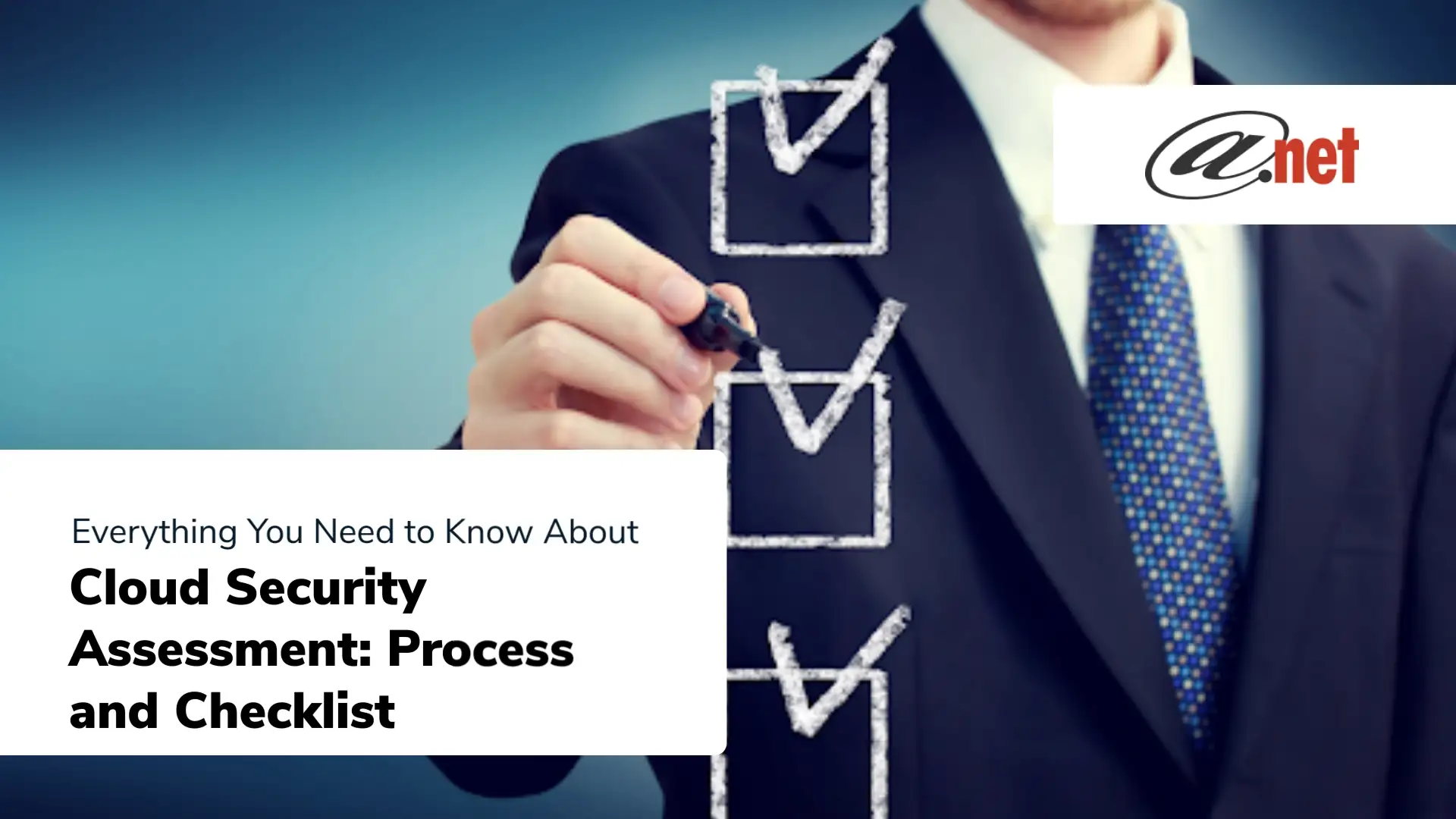
There’s no doubt about the fact that cloud technology is integral to the operations of many businesses and organizations today.
In 2023, the number of businesses using cloud services reached an astounding 94%.
With the increasing reliance on cloud services, there’s a heightened need to ensure that the infrastructure and data residing in the cloud are secure.
| As Jeffrey S. King, President of AT-NET, says, “Cloud security is the key to unlocking digital potential without fear.” |
This blog will delve into what cloud security assessments are, their importance, the process of conducting them, and provide a checklist to help guide the assessment process.
What is Cloud Security Assessment?
A cloud security assessment is an evaluation process designed to identify and analyze the security posture of an organization’s cloud environment. It involves scrutinizing various elements such as applications, data, management policies, and the underlying cloud infrastructure.
The top cloud security concerns are data loss and leakage (69%) and data privacy/confidentiality (66%), followed by accidental exposure of credentials (44%).
Worried About Data Safety in the Cloud?Fortify your cloud infrastructure against emerging threats with AT-NET. |
Why Do You Need a Cloud Security Assessment?
45% of breaches are cloud-based. According to a recent survey, 80% of companies have experienced at least one cloud security incident, and 27% of organizations have experienced a public cloud security incident, up 10% from last year.
This highlights that cloud security assessments are an indispensable part of maintaining a robust security posture.
The significance of cloud security assessments lies in their ability to highlight potential risks and vulnerabilities within your cloud environment. As your business increasingly stores sensitive data and runs critical operations in the cloud, the need for robust security measures becomes paramount.

These assessments help in identifying gaps in security, ensuring that the cloud service adheres to best practices and regulatory requirements, and aids in safeguarding against data breaches and cyber threats.
Conducting cloud security assessments is not just a reactive measure; it is also proactive. They provide you with insights that help in enhancing the security framework, thus preventing incidents before they occur. Furthermore, for businesses migrating to the cloud, these assessments are essential in ensuring a secure transition.
Cloud Security Risk Assessment Process
The cloud risk assessment process is a structured approach to evaluating the security of cloud deployments. It typically involves the following steps:
- Scope Definition: Define the boundaries of the assessment, including the cloud services, applications, and data to be evaluated.
- Risk Identification: Identify potential threats and vulnerabilities that could affect the cloud environment. This includes analyzing access controls, infrastructure security in cloud computing, and incident response capabilities.
- Risk Analysis: Assess the identified risks in terms of their likelihood and potential impact. This helps in prioritizing the risks based on their severity.
- Risk Mitigation: Develop strategies to mitigate the identified risks. This may include implementing additional security controls, revising policies, or conducting penetration testing.
- Report and Follow-Up: Document the findings and recommendations in a detailed report. This report should guide future security measures and serve as a reference for ongoing security monitoring.
| More resources you might like: |
Cloud Risk Assessment Checklist
A cloud security risk assessment checklist is a tool that guides the assessment process, ensuring that all critical aspects of cloud security are evaluated.
Key items in this checklist include:
|
Conduct Your Cloud Assessments with AT-NET’s Expert Support
At AT-NET, we are dedicated to providing top-notch cloud assessment services. Our team has extensive experience in managing and securing cloud infrastructures. We ensure that your business data is not only safe but also meets all necessary industry standards.
If you’re looking to improve your business’s cloud security, we’re here to help. Contact us to set up a free consultation, where we can discuss how AT-NET can assist with your cloud assessment needs in a simple, effective manner.
| Learn More About Our Cloud Services Near You: |



